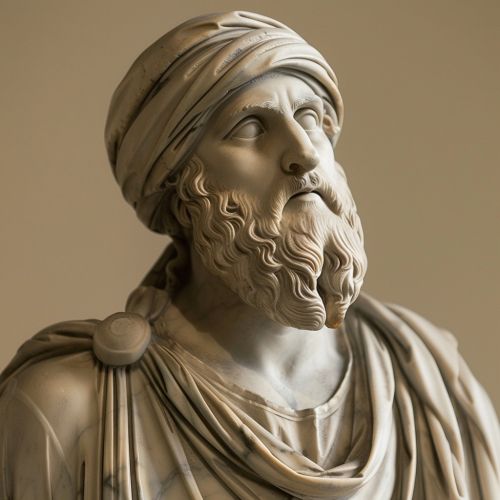Protagoras
Early Life and Education
Protagoras was born in Abdera, a city in ancient Thrace, around 490 BC. Not much is known about his early life or his family background. Some sources suggest that he worked as a porter before he became a philosopher, but this is not confirmed.
Philosophy
Protagoras is known for his philosophy, which is often classified as Sophist in nature. He is best known for his statement, "Man is the measure of all things," which is interpreted as a radical form of relativism. This statement implies that there is no absolute truth, but that each individual has their own perspective.
Protagoras' philosophy also includes the concept of agnosticism. He argued that it is impossible to know whether or not the gods exist, stating, "Concerning the gods, I have no means of knowing whether they exist or not, nor of what sort they may be, because of the obscurity of the subject, and the brevity of human life."
Influence and Legacy
Protagoras' ideas had a significant impact on the development of Western philosophy. His relativistic views influenced the philosophical school of skepticism, and his agnostic views laid the groundwork for later philosophical and theological debates about the existence of deities.
Despite the controversy surrounding his ideas during his lifetime, Protagoras' influence has endured. His ideas continue to be studied and debated in philosophical circles, and his contributions to the field of rhetoric have had a lasting impact on the study and practice of argumentation and persuasion.
Death and Posthumous Reputation
Protagoras died around 420 BC, but the circumstances of his death are not well-documented. After his death, his reputation varied widely. Some praised him for his innovative ideas and his contributions to philosophy and rhetoric, while others criticized him for his perceived impiety and his controversial views.


